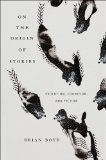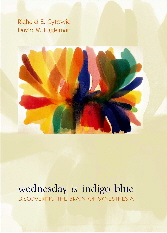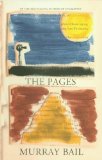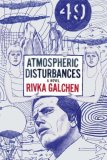May 12, 2009

I just chanced across this book at Amazon: On the Origin of Stories: Evolution, Cognition, and Fiction by Brian Boyd (Belknap Press, 2009). I’d seen it mentioned over a year ago in an article by Boyd.
Product Description from the publisher
A century and a half after the publication of Origin of Species, evolutionary thinking has expanded beyond the field of biology to include virtually all human-related subjects—anthropology, archeology, psychology, economics, religion, morality, politics, culture, and art. Now a distinguished scholar offers the first comprehensive account of the evolutionary origins of art and storytelling. Brian Boyd explains why we tell stories, how our minds are shaped to understand them, and what difference an evolutionary understanding of human nature makes to stories we love.
Art is a specifically human adaptation, Boyd argues. It offers tangible advantages for human survival, and it derives from play, itself an adaptation widespread among more intelligent animals. More particularly, our fondness for storytelling has sharpened social cognition, encouraged cooperation, and fostered creativity.
After considering art as adaptation, Boyd examines Homer’s Odyssey and Dr. Seuss’s Horton Hears a Who! demonstrating how an evolutionary lens can offer new understanding and appreciation of specific works. What triggers our emotional engagement with these works? What patterns facilitate our responses? The need to hold an audience’s attention, Boyd underscores, is the fundamental problem facing all storytellers. Enduring artists arrive at solutions that appeal to cognitive universals: an insight out of step with contemporary criticism, which obscures both the individual and universal. Published for the bicentenary of Darwin’s birth and the 150th anniversary of the publication of Origin of Species, Boyd’s study embraces a Darwinian view of human nature and art, and offers a credo for a new humanism.
Comments (1)
- cognitive science,fiction,new books
April 5, 2009

Wednesday Is Indigo Blue: Discovering the Brain of Synesthesia by Richard E. Cytowic and David M. Eagleman (MIT Press, 2009)
Product description from the publisher:
A person with synesthesia might feel the flavor of food on her fingertips, sense the letter J as shimmering magenta or the number 5 as emerald green, hear and taste her husband’s voice as buttery golden brown. Synesthetes rarely talk about their peculiar sensory gift—believing either that everyone else senses the world exactly as they do, or that no one else does. Yet synesthesia occurs in one in twenty people, and is even more common among artists. One famous synesthete was novelist Vladimir Nabokov, who insisted as a toddler that the colors on his wooden alphabet blocks were “all wrong.” His mother understood exactly what he meant because she, too, had synesthesia. Nabokov’s son Dmitri, who recounts this tale in the afterword to this book, is also a synesthete—further illustrating how synesthesia runs in families.
In Wednesday Is Indigo Blue, pioneering researcher Richard Cytowic and distinguished neuroscientist David Eagleman explain the neuroscience and genetics behind synesthesia’s multisensory experiences. Because synesthesia contradicted existing theory, Cytowic spent twenty years persuading colleagues that it was a real—and important—brain phenomenon rather than a mere curiosity. Today scientists in fifteen countries are exploring synesthesia and how it is changing the traditional view of how the brain works.
Cytowic and Eagleman argue that perception is already multisensory, though for most of us its multiple dimensions exist beyond the reach of consciousness. Reality, they point out, is more subjective than most people realize. No mere curiosity, synesthesia is a window on the mind and brain, highlighting the amazing differences in the way people see the world.
See also: Dr. Cytowic’s website, Dr. Eagleman’s website

Eagleman is also the author of a recent fictional work: Sum: Forty Tales from the Afterlives (which has a Kindle edition).
Comments (1)
- cognitive science,fiction,new books
February 22, 2009

Passage by Connie Willis (Bantam, 2001, 2002) is a “neurofictional” account of scientific research on near-death experiences. Willis is usually classified as a science fiction writer, but here that would be in the sense of “fiction about science.” The premise is that a researcher has found a psychoactive drug that simulates the near-death experience. He enlists psychologist Joanna Lander to interview research subjects but she soon volunteers to take the drug herself and this intensifies her quest to discover the meaning of the experience.
The back of the book has a rather odd blurb from Newsday that calls Willis “a true heir to John Donne, Kurt Godel and Preston Sturges….” so try to imagine that combination in a novel! I found the story compelling and consumed the whole 780 pages over about three days.
Comments (0)
- cognitive science,consciousness,fiction
August 26, 2008
Reviewed in The Telegraph: “The Pages is a nicely written, wonderfully entertaining novel with optional depths about the discoveries of an Australian who devotes his adult life to an introspective search for truth.”

The Pages is coming next month in the US (Sept. 28).
Comments (0)
- fiction,new books
July 25, 2008
By chance I’ve just read two novels that deal with issues of identity, coming from opposite directions: 
 Atmospheric Disturbances: A Novel by Rivka Galchen and The Soul Thief: A Novel by Charles Baxter.
Atmospheric Disturbances: A Novel by Rivka Galchen and The Soul Thief: A Novel by Charles Baxter.
In Atmospheric Disturbances, a first novel written by a younger woman, the narrator is an older man, a psychiatrist, who believes his wife has been replaced by an impostor. In The Soul Thief, the author’s fourth novel, the narrator is a graduate student who suspects another character is stealing or trying to steal his identity.
How much change or discontinuity can the concept of identity accommodate? What if the people you know suddenly don’t recognize you? What if the past you thought was yours is told to you as someone else’s story?
Charles Baxter on “questions of identity”
‘Atmospheric Disturbances’ website
Comments (0)
- fiction,self









